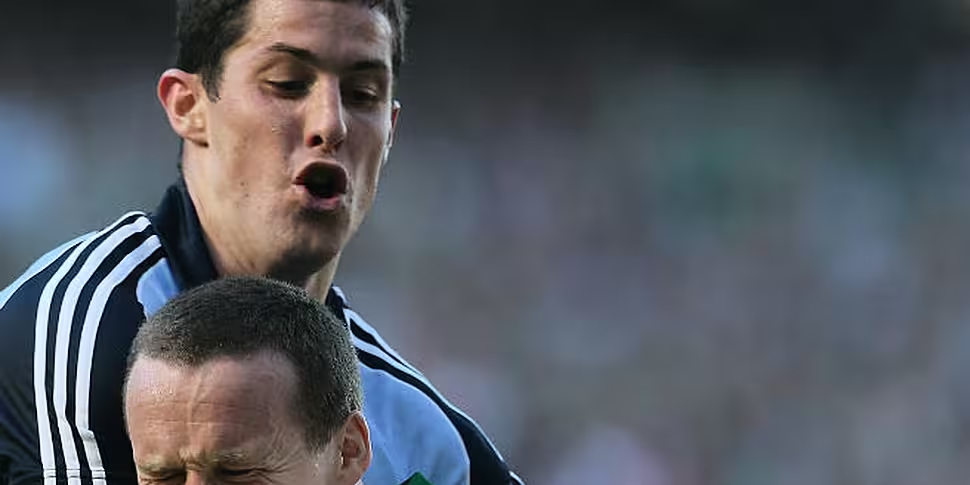During Sunday's All Ireland final, Dublin's Rory O'Carroll was knocked out after a collision with Mayo's Enda Varley.
The 24-year-old suffered concussion and it was visible to viewers on TV, fans and team-mates like Stephen Cluxton that he was disorientated.
"If we had known the extent of Rory’s injury he would have been off," said manager Jim Gavin after the game. "But I think for a guy who they said had concussion afterwards, he seemed to play well."
O'Carroll had also indicated that he was fine to continue.
Dublin had already made all of their substitutions and there were a few walking wounded in blue already.
But that does not take away from the potentially hazardous situation. The GAA's Position on concussion is very clearly stated:
- A concussed player should be removed from the game or training session.
- "A concussed player may attempt to minimize their injury or refuse to come off putting them at risk - judgement may be impaired."
The issue of sportspeople playing on with the effects of concussion has been a major talking point in rugby and the NFL. Recently there were calls for safeguards around concussion following the death of a 14-year-old rugby player in Northern Ireland from “second impact syndrome.”
The issue of concussion was discussed on The Pat Kenny Show today in light of the Rory O'Carroll incident.
Pat was joined by Barbara O’Connell of Acquired Brain Injury Ireland (ABI) and Dr. Barry O’Driscoll, a former medical advisor to the International Rugby Board.
ABI Ireland has a campaign called 'Not Always A Knockout' to educate players and coaches about the dangers of mismanaging head injuries and Rory O'Carroll is an ambassador.
Should he have come off the field? The ABI was certainly critical of Dublin's decision to allow him to continue.
Barbara relayed a message from Rory on the show:
"Rory himself admitted that in hindsight he should have come off," she said. "But as you know, his decision-making was impaired and I really believe that he shouldn't have had to make that decision. The officials should have made that decision on his behalf and to take him off immediately."
Barbara believes rules need to be brought in place to allow for emergency substitutions in the case of head injuries and concussion.
And she was clear about the very real danger if Rory had suffered a second blow to the head after staying on.
"If Rory had got a second bash to the head, it could have been fatal! People need to get that message."
Dr O'Driscoll who is an uncle of Ireland and Leinster star Brian, also touched on the five minute assessment rule. It allows players to return to the field of play after a serious head injury if they pass a short assessment on the sideline.
Dr O'Driscoll is vehemently opposed to it and left his role with the IRB as he was not satisfied with their safeguard.









